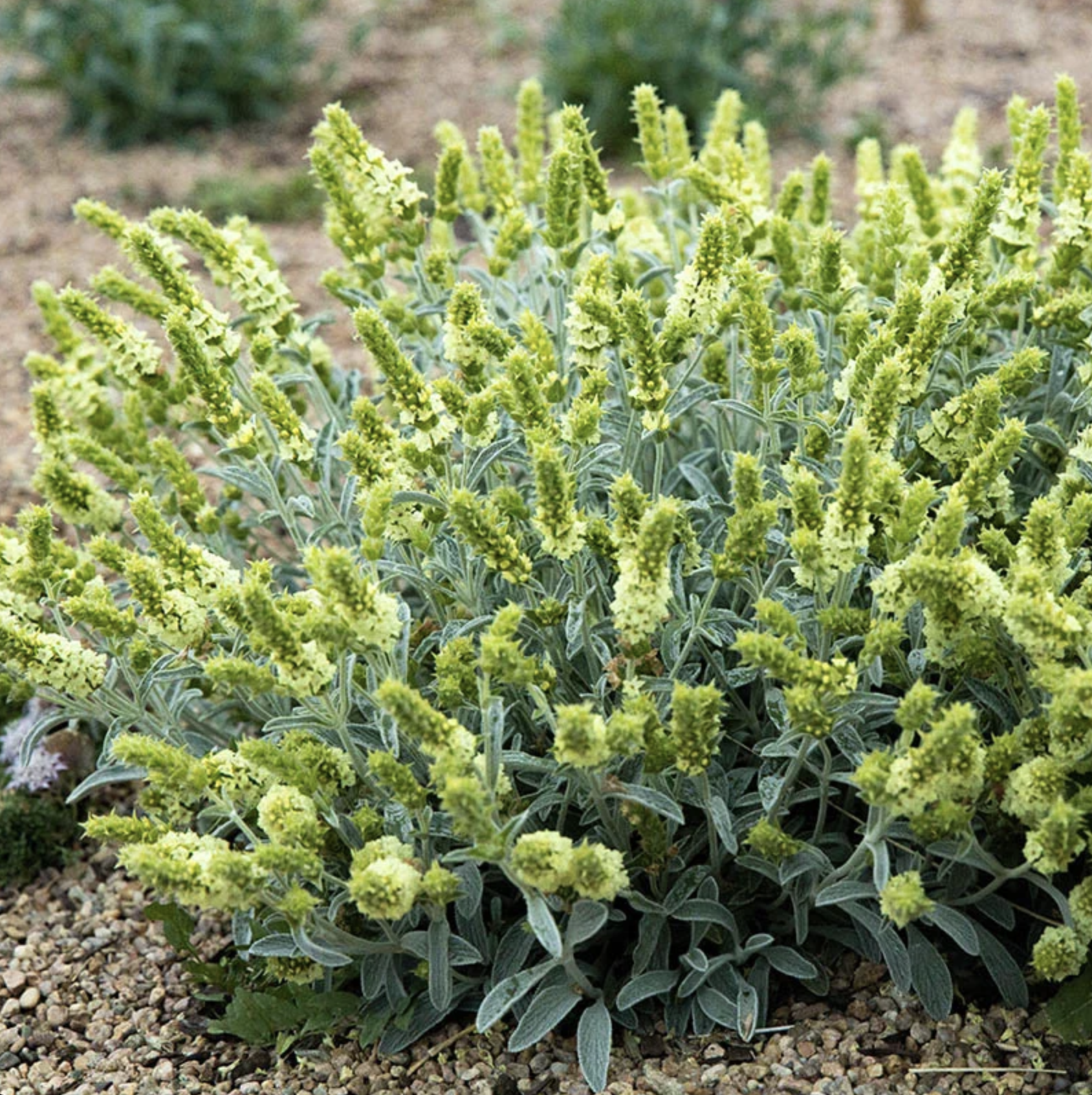 Image 1 of 1
Image 1 of 1


Greek Mountain Tea/Ironwort
Sideritis spp.
Description: Greek Mountain Tea, also known as “Ironwort” is a hardy, drought-tolerant perennial herb known for its soft, silvery-green leaves and tall spikes of delicate yellow flowers. Traditionally grown in the rocky slopes of the Mediterranean, this aromatic plant thrives in well-drained soils and warm climates. Valued for both its ornamental beauty and medicinal properties, Greek Mountain Tea is an excellent addition to herb gardens, rock gardens, and pollinator-friendly landscapes.
Wildlife Benefits: The nectar-rich flowers attract bees, butterflies, and other pollinators, providing a valuable food source during the warm months.
Medicinal Benefits: Traditionally used in Greek herbal medicine for immune support, digestion, and relaxation, Greek Mountain Tea is rich in antioxidants and anti-inflammatory compounds. The dried flowers and leaves are commonly brewed into a soothing, caffeine-free herbal tea known for its health-boosting properties.
Native Status: Native to the mountainous regions of Greece and the Mediterranean, Greek Mountain Tea thrives in dry, rocky soils and is well-adapted to Georgia’s warm climate.
Pollinator Friendliness: With its long-lasting blooms and abundant nectar, Greek Mountain Tea is an excellent choice for attracting bees and butterflies to the garden.
Planting Guidelines:
Height: 12–24 inches
Spacing: 12–18 inches
Sun/Shade: Requires Full Sun
How to Grow: Greek Mountain Tea thrives in well-drained, sandy, or rocky soil and requires minimal watering once established. It is highly drought-tolerant and benefits from occasional pruning to encourage bushy growth. Harvest leaves and flowers in mid-to-late summer for the best flavor and medicinal potency.
Grow Greek Mountain Tea for its fragrant foliage, health benefits, and pollinator appeal—an easy-care, Mediterranean herb that brings both beauty and wellness to any garden.
Available in 2.5 inch pots
Sideritis spp.
Description: Greek Mountain Tea, also known as “Ironwort” is a hardy, drought-tolerant perennial herb known for its soft, silvery-green leaves and tall spikes of delicate yellow flowers. Traditionally grown in the rocky slopes of the Mediterranean, this aromatic plant thrives in well-drained soils and warm climates. Valued for both its ornamental beauty and medicinal properties, Greek Mountain Tea is an excellent addition to herb gardens, rock gardens, and pollinator-friendly landscapes.
Wildlife Benefits: The nectar-rich flowers attract bees, butterflies, and other pollinators, providing a valuable food source during the warm months.
Medicinal Benefits: Traditionally used in Greek herbal medicine for immune support, digestion, and relaxation, Greek Mountain Tea is rich in antioxidants and anti-inflammatory compounds. The dried flowers and leaves are commonly brewed into a soothing, caffeine-free herbal tea known for its health-boosting properties.
Native Status: Native to the mountainous regions of Greece and the Mediterranean, Greek Mountain Tea thrives in dry, rocky soils and is well-adapted to Georgia’s warm climate.
Pollinator Friendliness: With its long-lasting blooms and abundant nectar, Greek Mountain Tea is an excellent choice for attracting bees and butterflies to the garden.
Planting Guidelines:
Height: 12–24 inches
Spacing: 12–18 inches
Sun/Shade: Requires Full Sun
How to Grow: Greek Mountain Tea thrives in well-drained, sandy, or rocky soil and requires minimal watering once established. It is highly drought-tolerant and benefits from occasional pruning to encourage bushy growth. Harvest leaves and flowers in mid-to-late summer for the best flavor and medicinal potency.
Grow Greek Mountain Tea for its fragrant foliage, health benefits, and pollinator appeal—an easy-care, Mediterranean herb that brings both beauty and wellness to any garden.
Available in 2.5 inch pots
